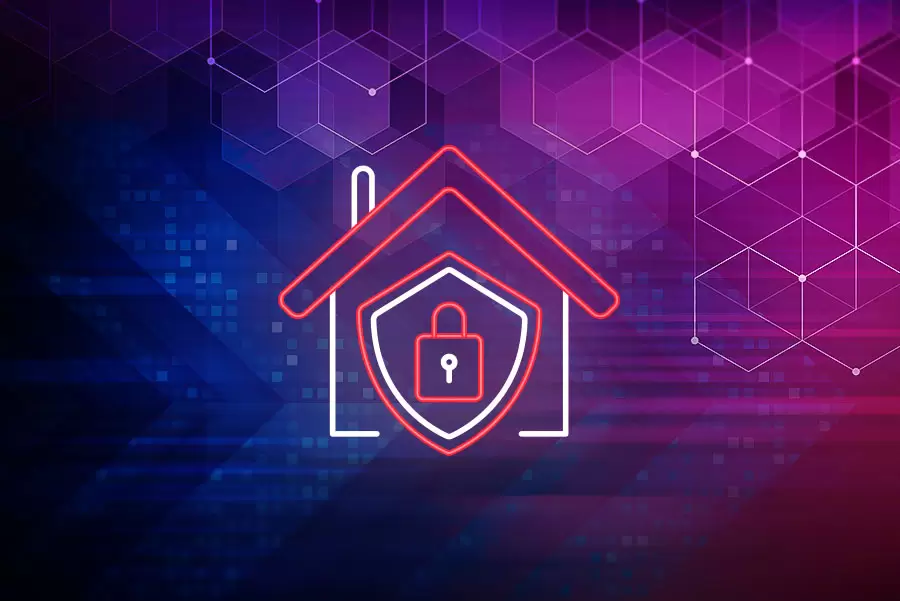Blog
Cybersecurity for the Home

Think cybersecurity is only for the workplace?
Cybersecurity for the home is also essential.
The bad guys are targeting your home and family as well. And now that many workers are remoting into their employer’s network for some or all of their work week, there’s been a surge of attacks.
Attacks during the pandemic have included bogus sign-in pages for popular video conferencing software, malicious emails purportedly coming from company executives, fake requests from the IT support team asking users to download updates or software, and more.
It’s imperative workers remain as vigilant as they are in the workplace. Here are eight ways to defend yourself from cyberattacks.
1. Be vigilant
The first step to security is awareness of the threats. Have at least a basic understanding of the various ways cyber criminals attack people and computers. Without this knowledge, it will make it easier for you to fall for cyber schemes.
2. Change your Wi-Fi default password
Don’t forget to change the default admin password on your Wi-Fi router. Make it strong, just like you would for your normal accounts.
3. Keep track of all devices connecting to your network
It seems like everything connects to the Internet now. Game systems, refrigerators, baby monitors, TVs, and other devices utilize your network. As such, you should also keep the accounts related to these devices as secure as possible. Keep those passwords strong!
4. Just say no to recycled passwords
Chances are you have more accounts and passwords now than you had just several years ago. Don’t be tempted to use the same (or similar) passwords across multiple accounts. If a hacker breaks into one and you’ve recycled the password, you’ve enabled them to wreak even more havoc.
5. Update ’em!
Don’t ignore notices for software or firmware updates. There’s usually a very good reason for these. Oftentimes, these address recently discovered vulnerabilities. Not updating could potentially leave a “window” open for cyber criminals to exploit.
6. Think before you click
We’ve said it numerous times before, and we’ll say it again. Think before clicking on something. This is especially true when you’re distracted. With elevated social engineering and hard-to-detect phishing emails, it’s getting harder to determine if a fake email really is fake. Be wary of attachments and hyperlinks, especially if you weren’t expecting the communication. When in doubt, contact the sender by phone or a new email.
7. Use a firewall
If your router doesn’t have a built-in firewall, you may want to consider utilizing a firewall for added defense. As we’ve mentioned many times, layering your defenses is an effective way of protecting yourself against cyber criminals.
Every new defensive measure will frustrate attackers.
8. Disable your network (when you’re out for a while)
Leaving for an extended period of time? Going on vacation? You may want to consider turning off your home network if you don’t need it. This will essentially shut down hackers’ attempts to take advantage of your absence.
—
Cyber criminals are opportunists. They take advantage of less-than-ideal situations. Follow the above tips to help protect yourself. Cybersecurity for the home is as essential as it is in the office.
Like these tips for cybersecurity for the home? Want more? Sign up for Thrive’s blog. Handy, easy-to-follow advice sent directly to your inbox.
